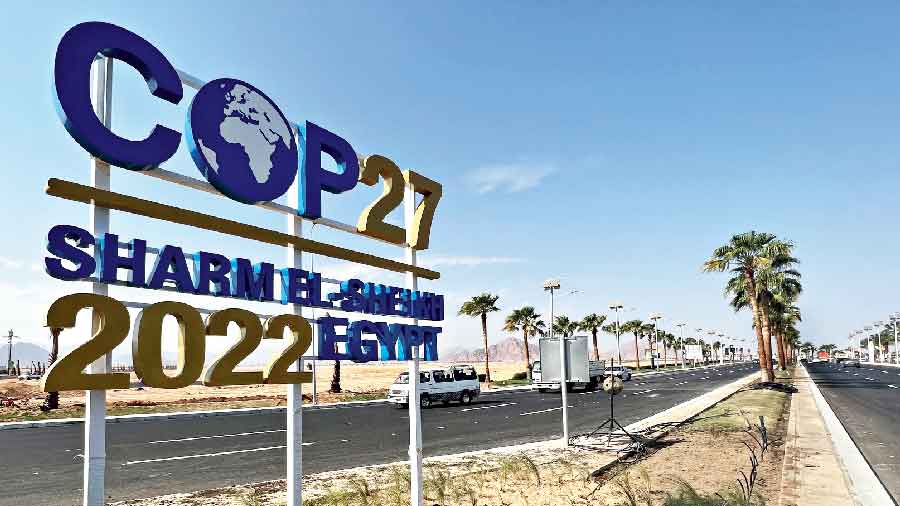Negotiators from nearly 200 countries agreed for the first time to establish a fund that would help poor, vulnerable countries cope with climate disasters made worse by the pollution spewed by wealthy nations that is dangerously heating the planet.
The decision regarding payments for climate damage marked a breakthrough on one of the most contentious issues at United Nations climate negotiations. For more than three decades, developing nations have pressed for loss and damage money, asking rich, industrialized countries to provide compensation for the costs of destructive storms, heat waves and droughts fueled by global warming.
But the United States and other wealthy countries had long blocked the idea, for fear that they could be held legally liable for the greenhouse gas emissions that are driving climate change.
The agreement hammered out in this Red Sea resort town says nations cannot be held legally liable for payments. The deal calls for a committee with representatives from 24 countries to work over the next year to figure out exactly what form the fund should take, which countries should contribute and where the money should go. Many of the other details are still to be determined.
The creation of a loss and damage fund was almost derailed by disputes that ran into the dawn hours of Sunday over other elements of a broader agreement, including how deeply countries should cut their emissions and whether to include language that explicitly called for a phaseout of fossil fuels, including coal, natural gas and oil.
Developing nations — largely from Asia, Africa, Latin America, the Caribbean and South Pacific — fought first to place the loss and damage fund on the formal agenda of the two-week summit. And then they were relentless in their pressure campaign, arguing that it was a matter of justice, noting they did little to contribute to a crisis that threatens their existence.
“The announcement offers hope to vulnerable communities all over the world who are fighting for their survival from climate stress,” said Sherry Rehman, Pakistan’s minister for climate change. “And gives some credibility to the COP process.”
Still, major hurdles remain.
The U.S. and the EU are pushing for assurances that China will eventually contribute to any fund created — and that China would not be eligible to receive money from it.
There is also no guarantee that wealthy countries will deposit money into the fund.
Immediately after the plenary approval for the loss and damage fund, however, Switzerland called for a 30-minute suspension for time to study the new text of the overall deal - specifically the language relating to national efforts to cut climate-warming emissions, the Swiss delegate said, according to a Reuters report.
Negotiators late Saturday had worried about changes being discussed so late in the process.
The document, which forms the overall political deal for COP27, needs approval from the nearly 200 countries at the climate summit in Egypt. In line with earlier iterations, the draft did not contain a reference requested by India and some other delegations to phasing down use of“all fossil fuels”. It instead referred to a phase down of coal only, as agreed at last year's summit.
New York Times News Service











